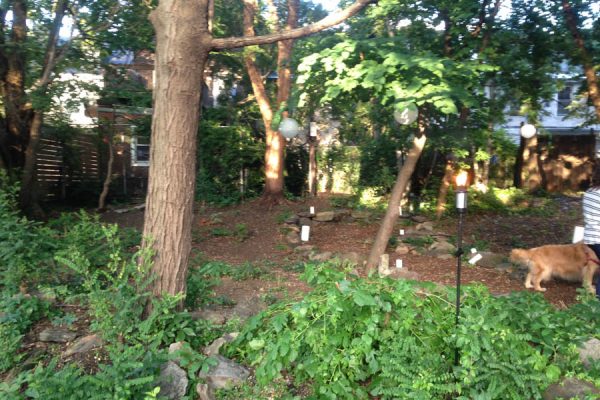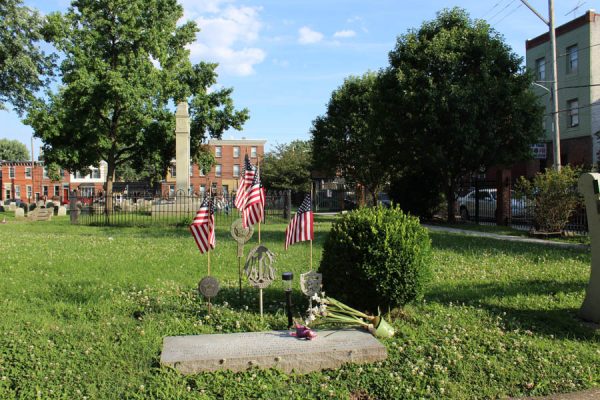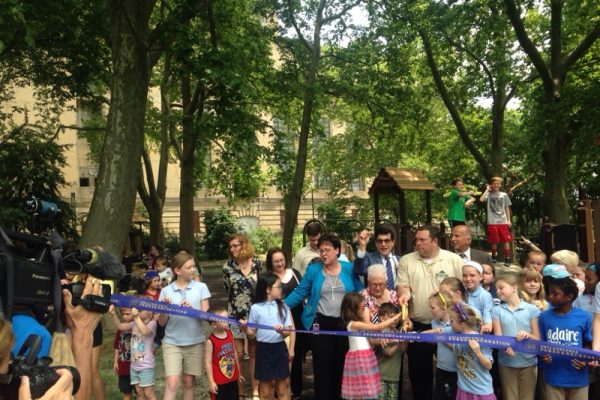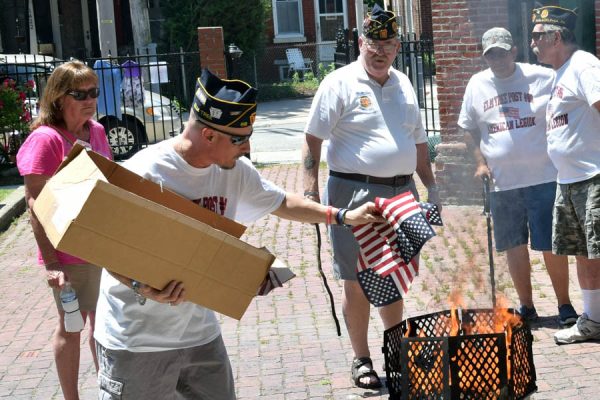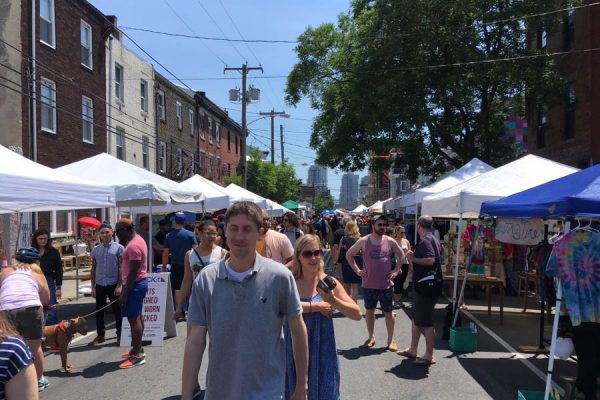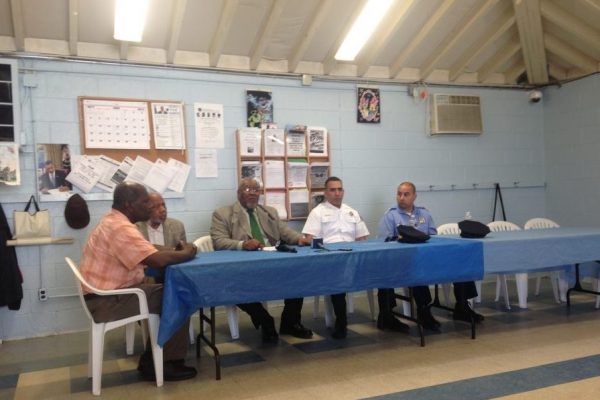Front and Girard-Grand Central Station for Resident Woes
THIS STORY IS PART OF AN ONGOING SERIES ABOUT THE EFFECT OF METHADONE TREATMENT ON INDIVIDUALS AND THE NEIGHBORHOOD. PART I GAVE AN OVERVIEW OF METHADONE TREATMENT AND THE GOLDMAN CLINIC; PART II EXAMINED THE RAMONITA DE RODRIGUEZ LIBRARY; PART IV OUTLINED THE POTENTIAL OF VIVITROL, AN ALTERNATIVE TREATMENT; PART V LOOKED AT HOW POLICE AND POLITICIANS HANDLE THESE PROBLEMS:
Broken Windows Part III
A woman nodded off on a bench near the intersection of Front and Girard. Matt Kilcline, a Fishtown resident, had witnessed this before. But something made him keep his eyes on her this time.
The cigarette in the woman’s hand fell to the ground as her body relaxed. A man nearby made his way toward her. When the man stopped near the woman, what he did shocked Kilcline.
“She dropped the cigarette and the guy just picked it up and kept walking,” Kilcline said.
No one else was going to help.
Kilcline went to the woman and tried to wake her up. Nothing he did brought the woman out of it. He called 911. The paramedics took her to a hospital.
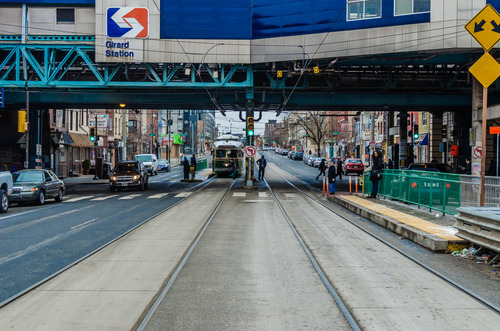
Kilcline has no idea whether the woman was a client from a methadone clinic or not. Perhaps she was just an addict not yet receiving help.
Administrators from Goldman point out that the “nodding” people seen on the street and in YouTube videos is not caused by methadone. It’s most often from a combination of illegal drugs, or possibly anti-anxiety and blood pressure medications.
Regardless, Kilcline sees the intersection as a major source of the trouble for residents in Fishtown, Kensington and Northern Liberties.
“This is where people come through to get to [several methadone clinics],” he said. “The problem is they don’t keep going [after they have received their dose].”
The Goldman clinic alone serves ten zip codes in the city.
The problem relates to the free transportation provided to addicts in treatment via Medicaid. The SEPTA passes they use are good all day.
Kilcline hesitates to blame SEPTA, but he feels they can do more. Much more. He said time limits on the free transportation would help. He cites the student TransPass service provided to Philadelphia’s 7th to 12th graders. There is a time-frame of 5:30AM to 7PM and no weekend usage.
“They can obviously limit the time,” Kilcline said. “Maybe a three hour window from start to finish would work.”
The implementation of the new SEPTA Key program (as explained in our January 21, 2015 cover story) will utilize RFID technology. Kilcline has experience with RFID and says instituting a time window for free rides would be easy.
But according to Kilcline, the SEPTA personnel who took the time to speak with him disagreed and claimed the system would not be able to do that. Kilcline plans to do more research on what SEPTA’s capabilities are.
Find out how the story ends. Check out PART IV and PART V
Sergeant John Massi of the 26th Police District agrees that Front and Girard may be the source of the bigger problem. He explained that if the clients were to keep moving there would be no market for the predators.
However he says the problem at the intersection becomes a catch 22.
“There is a lack of investment at the intersection due to [the presence] of the addicts and the people who prey upon them,” Massi said. “Most of the businesses there are not inclined to install cameras which could deter [people congregating].”
It may be because it’s not in their best interest to do anything.
“Look at the businesses that are there,” Kilcline said.
He said places like Deal$ (31 W. Girard Avenue) thrive on the type of person that hangs out there.
“The whole intersection suffers from an ownership issue,” Kilcline said.
Standing at the southeast corner of the intersection, where the Gold Club (58 W. Girard Avenue) is, Kilcline points to each corner and explains:
“This side is [Councilman Mark] Squilla’s, that side is [Councilman Darrell] Clark’s,” he said. “[The 26th district’s] PSA 3 is on one side, PSA 2 is on the other. SEPTA police handle the station. We have Kensington, Fishtown and Northern Liberties all meeting here… the businesses are all owned by LLC’s, many out-of-state.”
None of the businesses on that corner clean the area outside their buildings.
“The NKCDC [New Kensington Community Development Corporation] has a guy clean up twice a week, but the business should be doing it three times a day,” Kilcline said. “If you’re going to capitalize on it, then clean up.”
Ray Caceres, who detailed a fighting incident in Part One of this series, said the presence of loiterers scares away property investment.
“Properties near Girard [between 6th and 8th Streets] go for a third of what you can get for a similar property just two or three blocks away,” Caceres said.
Massi says the folks leaving the Goldman Clinic stop at the donut shop and the library on their way out. There is no pressure to keep them moving.
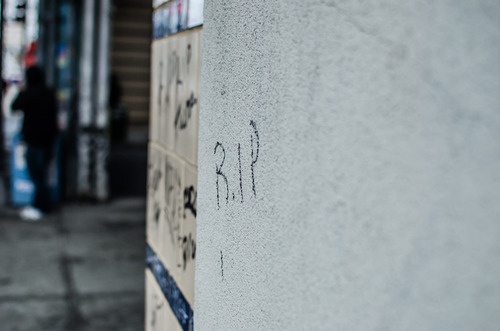
Residents at various civic meetings complain that they find people sleeping on their steps, open-air drug dealing and drug use in plain sight. They said their calls to 911 do not get the response they want. Calls to the Goldman Clinic are often answered with an explanation of a two-block jurisdiction.
Ron Pope, Director of the Goldman Clinic, said going out of the two-block area leads to another problem.
“It becomes a rights issue,” Pope said. “We have rules about loitering, but I can’t make someone go home if they don’t want to.”
At a recent public meeting at the library, Goldman administrators made it clear that the vast majority of their clients cause no problems.
Kilcline agrees with them. The clinic claims that less than 25 people probably cause the bulk of the problems. But discontinuing treatment just shifts the responsibility to another clinic.
Consequently other clinic’s clients may be referred to Goldman. Or worse, the client has no access to treatment and turns back to drugs or crime.
“These people need [assistance], and should be able to get help for their problem,” Kilcline said.
“It’s a shame [the problems caused by] the few have to affect the many.”
“This is a complicated issue,” he said.

